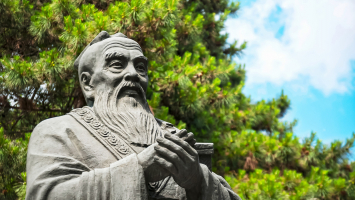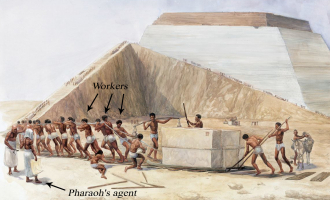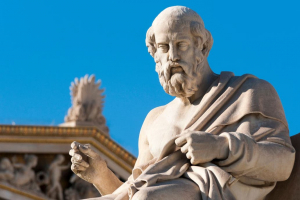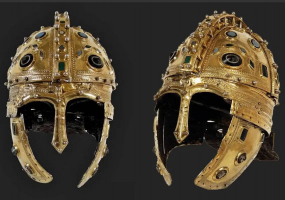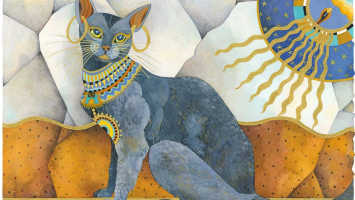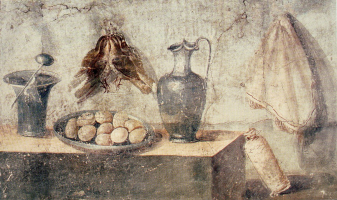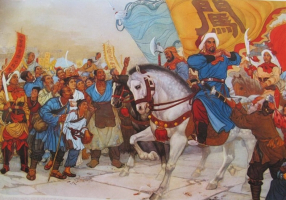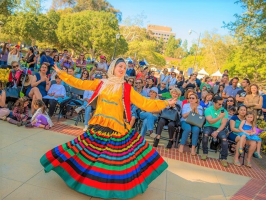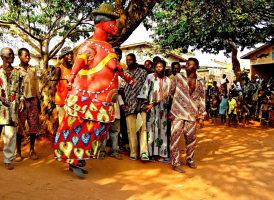Top 10 Most Famous People in Ancient Egypt
Ancient Egypt had a rich history, beautiful buildings, and notable people. Ibn Khaldun, Moses, and Cleopatra were just a few of the many well-known people who ... read more...made significant contributions to enhancing Egypt's reputation in history. They made contributions in such crucial areas as leadership, technology, and science. The Great Pyramids, one of the outstanding buildings that date back to 2550 BC, is still standing tall, demonstrating the solid base and elaborate planning. Modern structures, however, are not even capable of withstanding normal natural disasters. The ten most famous people of Ancient Egypt are listed below along with what they contributed to Egyptian history.
-
Hatshepsut, the fifth Pharaoh of Egypt's eighteenth dynasty, was born in 1507 BC. She took on the role of regent and controlled the throne as Thutmose II's wife following his death. When her husband Thutmose II passed away, Hatshepsut continued to govern Egypt until Thutmose III, his son, and the rightful heir reached adulthood. The only daughter of Thustome I and Ahmose, Hatshepsut, therefore, continued her bloodline as Thutmose III's regent and assumed the throne in 1479 BC.
After ascending to the throne as pharaoh, Hatshepsut started to portray herself as a man, complete with a false beard, kingly attire, and a crown. Although it could have appeared that this was a ruse, it wasn't! It was a means of her establishing her dominance as the female monarch. She governed Egypt for twenty years, during which time the country experienced prosperity. She didn't struggle for new territory as previous leaders did; instead, she concentrated on boosting the economy and creating and repairing monuments. The country's economy flourished while she was in charge.
Egypt had peace and prosperity under her rule. The trades were revived, and the Egyptian populace enjoyed a higher quality of life. Under her direction, a lot of structures and harbors were constructed, which economically assisted in raising Egyptians' standards of living. After twenty-one years, her reign came to an end on January 14, 1458 BC, when she passed away. After she passed away, Thustome III eventually demolished all of her artwork from temples and other structures.
Born in: 1507 BC
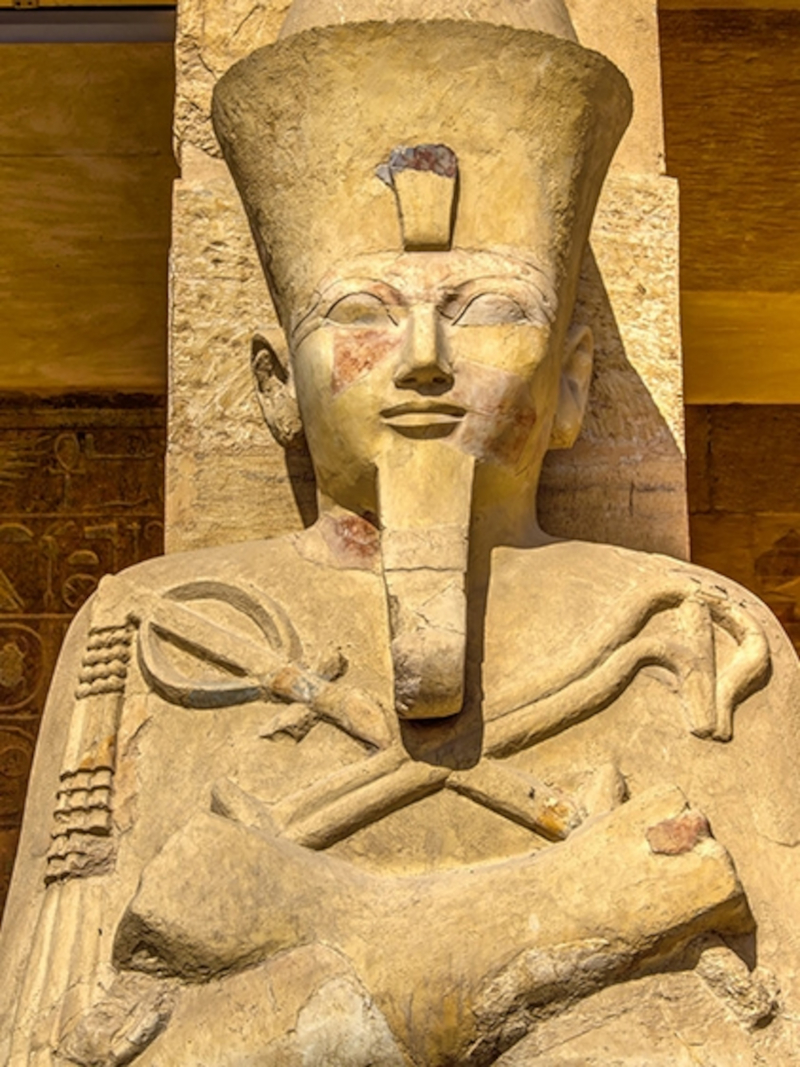
kids.nationalgeographic.com 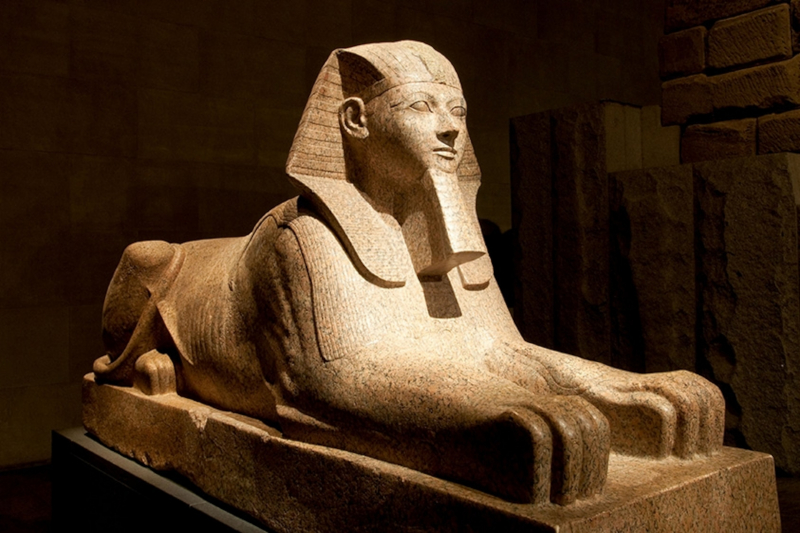
kids.nationalgeographic.com -
Moses was a prominent figure in Egyptian religion around 1391 BC. He was born in the Goshen Land. Moses was a Hebrew prophet, leader, and teacher who lived in the 13th century BCE (1391–1271 BCE). He was recognized as Israel's legislator as well. Slavery was a regular practice in Egypt during the time he lived there. Slave owners used their charges cruelly and treated them like property. According to the book of Exodus, Moses would save the Jews who were being exploited by the Egyptians.
Moses was born into a slave-holding Hebrew family. But he was adopted when he was little so he might benefit from being a member of the royal family. He would flee his home to the Southern Islands when he realized his background, where no one would ever find him. Later, God commanded him to aid the other slaves in escaping the abuse of their lords. Moses successfully assisted the Jews in escaping Egyptian enslavement by carrying out God's instructions.
If his goal was successful, he would establish a society and turn into the Prophet of all Abrahamic religions. Moreover, a reputable and revered Prophet. A collection of monotheistic faiths is referred to as Abrahamic religions or Abrahamism. Meaning that adherents to such religions think there is only one God, and that God created the universe. God is therefore omnipotent, omniscient, and omnipresent. Moses would be a well-regarded and revered educator. However, Exodus states that after ruling the Jews for forty years, he would pass everything over to Joshua and depart from Israel.
Born in: 1391 BC
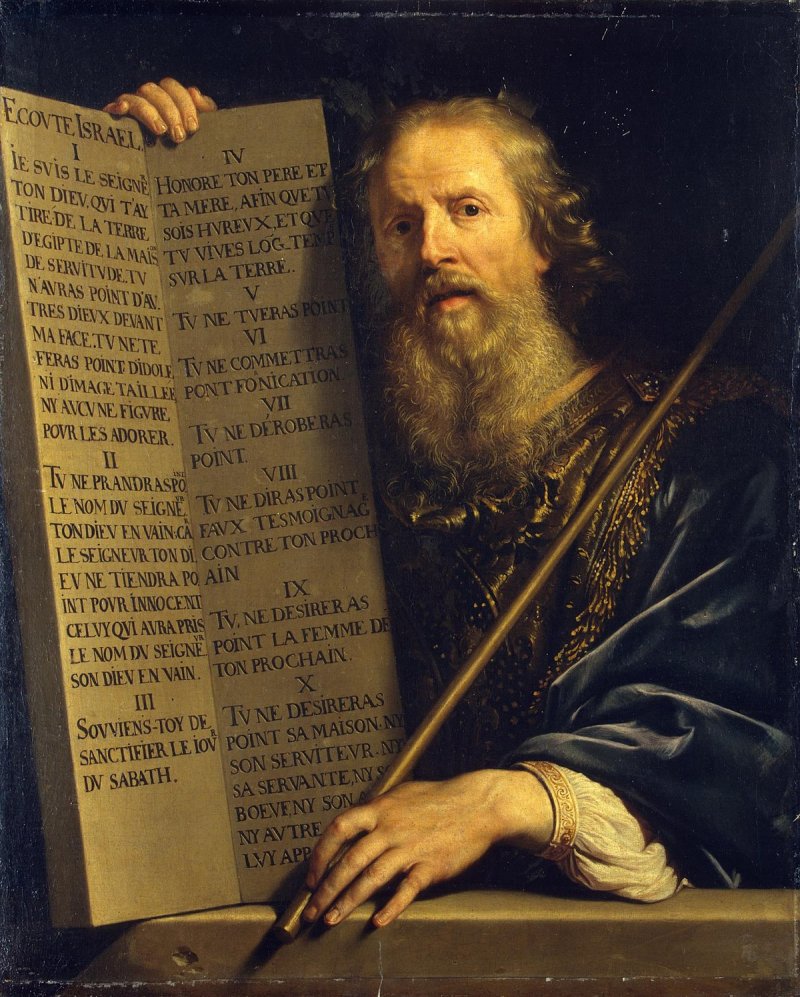
www.churchofjesuschrist.org 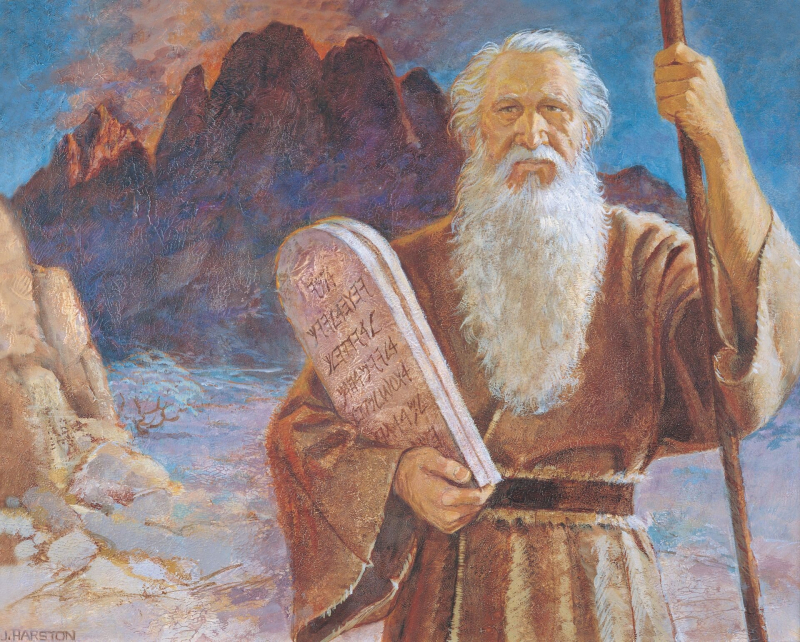
www.churchofjesuschrist.org -
The legendary Pharaoh Akhenaten, Nefertiti's spouse, was born in Egypt. He was the eleventh pharaoh of ancient Egypt's eighteenth century. Modern academics mostly remembered Akhenaten for the new religion he founded that was centered on Aten, the sun god. Egyptian king Akhenaten passed away in about 1332 BC. Akhenaten became one of the most famous people in Ancient Egypt for bringing the worship of Aten, a facet of the sun deity, in place of the polytheistic system and reforming it. He was a firm believer that people should worship the sun, as seen by the artwork produced at the time. He was sure that art in this period demonstrated how much people may have valued light. He also built several temples for the public to worship this divinity. When they decided to become disciples of Aten, other people were also forced to alter their names.
Before being proclaimed king immediately after his father's passing, Akhenaten co-ruled with him for eight years. He was regarded as possessing all the abilities necessary to reign, and as the years went by, he continually changed Egyptian religion. Many of the items he had forced upon the populace were abandoned after his death, and the monuments he had erected were demolished. The populace resumed using their old family names and maintained their belief in the deities they had before prayed to before Aten. This made it clear that Akhenaten was an oppressor who did not care about his subjects and pushed them to uphold what he believed to be absolute and moral.
Born in: 1372 BC
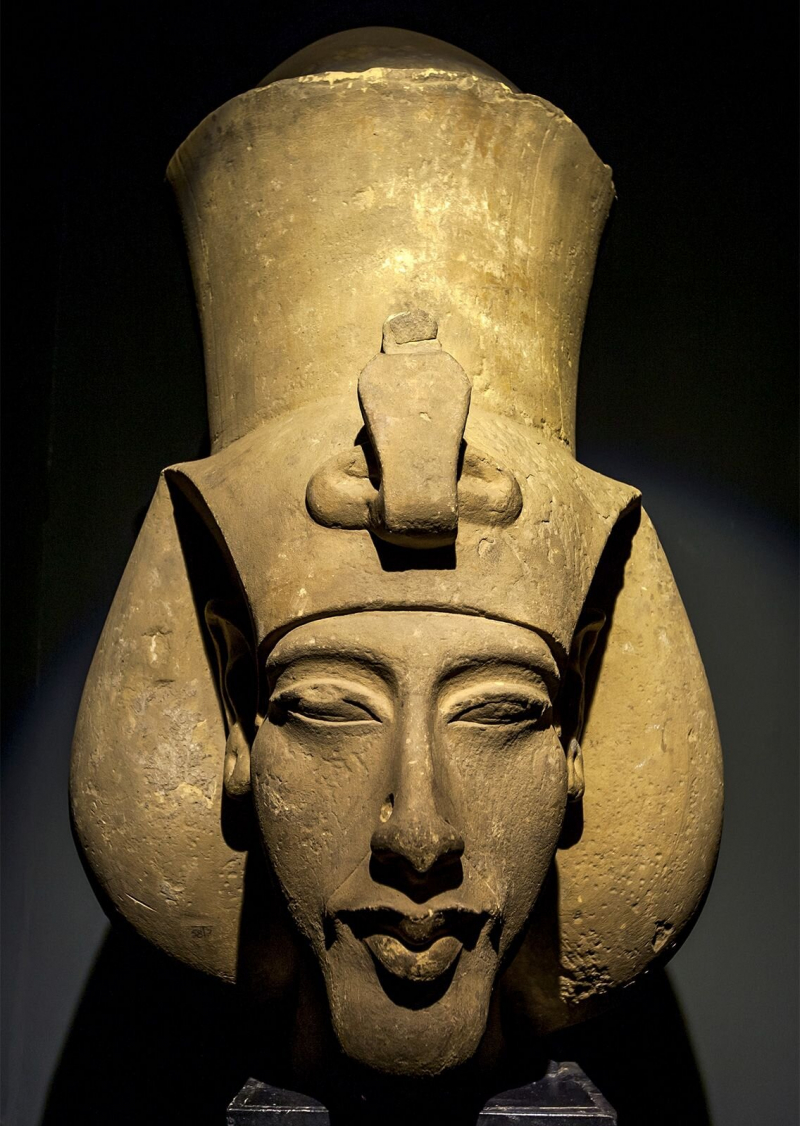
www.britannica.com 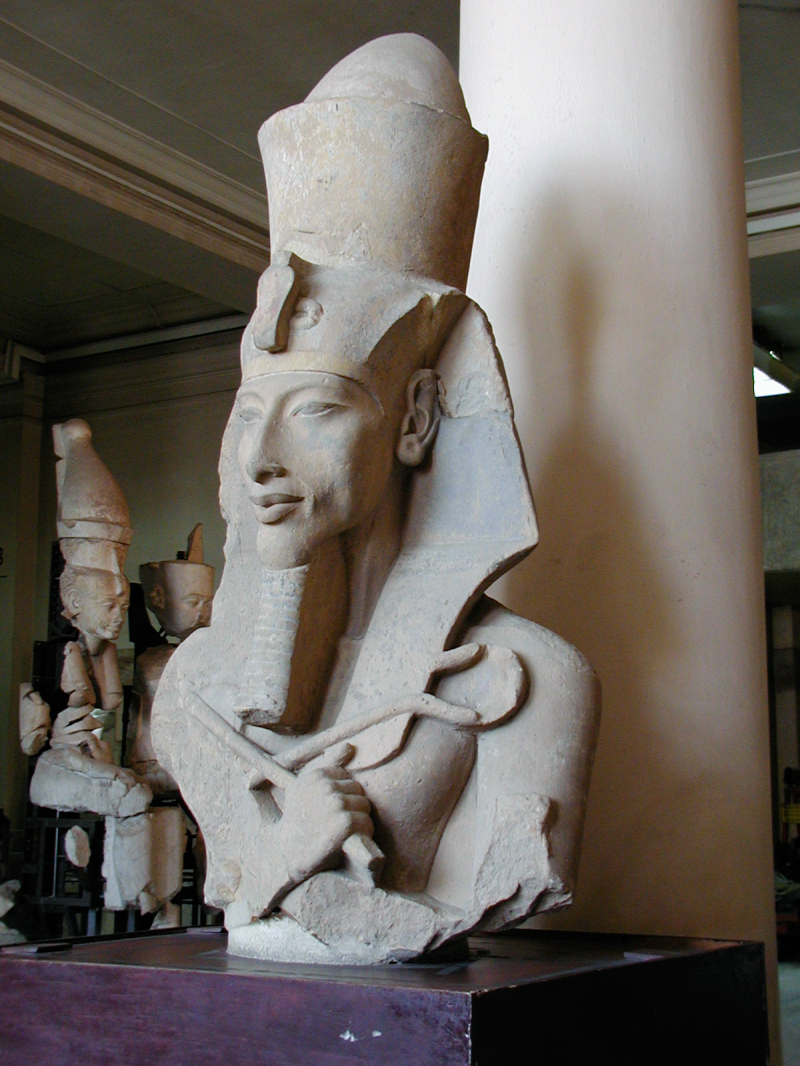
www.britannica.com -
Nefertiti, who was born in 1370 BC in Thebes, was a superb leader. She claimed to be the daughter of Ay and his wife Tey, even though her royal ancestry cannot be confirmed. They were never identified as her parents in any citations, though. She then married the emperor and bore him six daughters, becoming his regal spouse. The antique photographs show that she led her husband in worshipping the sun god.
The famously beautiful Nefertiti was the wife of the Egyptian pharaoh Akhenaten. "The beautiful one has come," her name signifies. She gained notoriety for her painted sandstone bust, which is now on display at the Neues Museum in Berlin. She reigned with her husband when ancient Egypt was at its richest. She and her husband put forth a lot of effort to start the Aten religion in Egypt. Before Nefertiti and Akhenaten's religious revolution, Egyptians practiced polytheism (worshipping several gods), but they were forced to convert to the worship of Aten the Sun God. Nefertiti was portrayed by Akhenaten as an equal partner. She was maybe one of the most dominant female figures in Egyptian history.
She demonstrated her outstanding leadership abilities during co-regency with the Pharaoh of ancient Egypt after the death of her husband. She held several titles, including Hereditary Princess, Lady of Grace, and Sweet of Love. In 1330 BC, she finally committed suicide in response to her daughter's passing.
Born in: 1370 BC
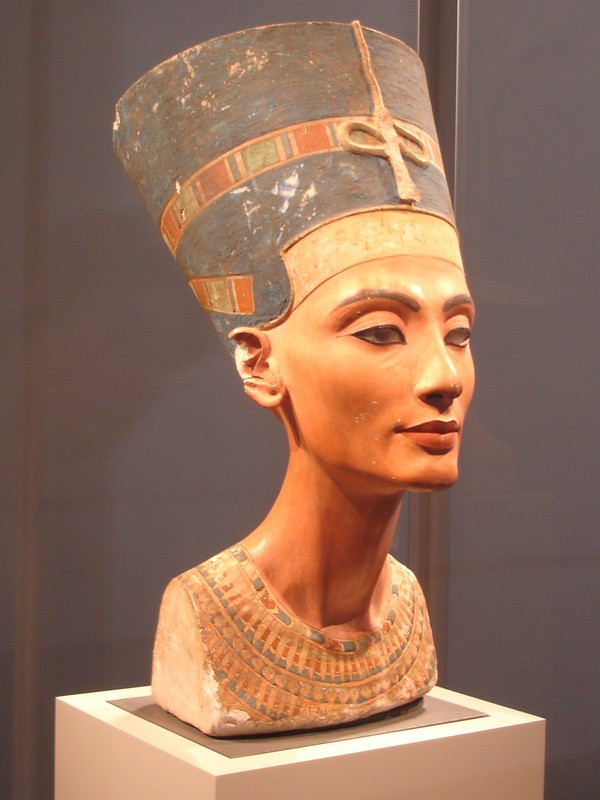
khoahoc.tv 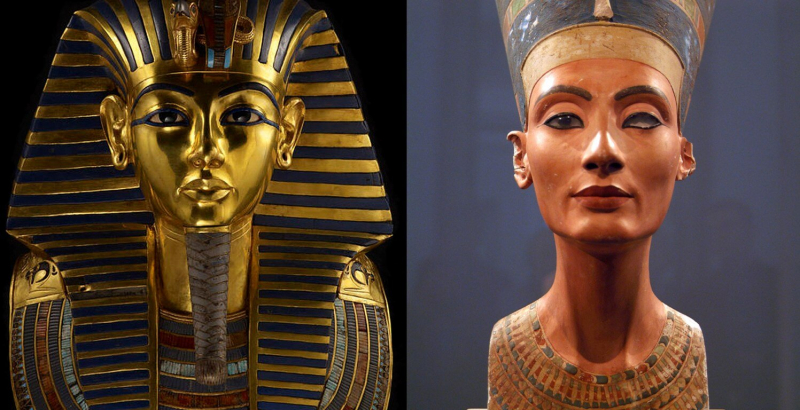
khoahoc.tv -
Egyptian queens were more well-liked than Egyptian kings. Ankhesenamun was a queen who was born in 1348 BC and died at the age of 26. Ankhesenamun served as the monarch during Egypt's eighteenth dynasty and was the daughter of the renowned royal wife Nefertiti and Pharaoh Akhenaten. She was Pharaoh Tutankhamun's royal wife and the third of Pharaoh Akhenaten's six known daughters.
Beginning in 1332 BC, she reigned jointly with the youthful King Tutankhamun. She wouldn't have anticipated getting involved in international issues after the young King's sudden demise. She was a "childless widow" due to her husband's early death, and it was her death in 22 BC that brought an end to her reign.
Ankhesenamun and Tutankhamun could have been half-siblings because the Pharaohs frequently married their siblings to preserve the royal dynasty. They held the view that by doing this, the royal lineage would stay unpolluted and pure, and the monarch would always be a member of the royal family. The drawback to this was that the kings later murdered their siblings to seize control of all of Egypt for themselves. Although rumors suggest that Ankhesenamun did have children with her father, nothing is known about her because of her early death.
Born in: 1348 BC
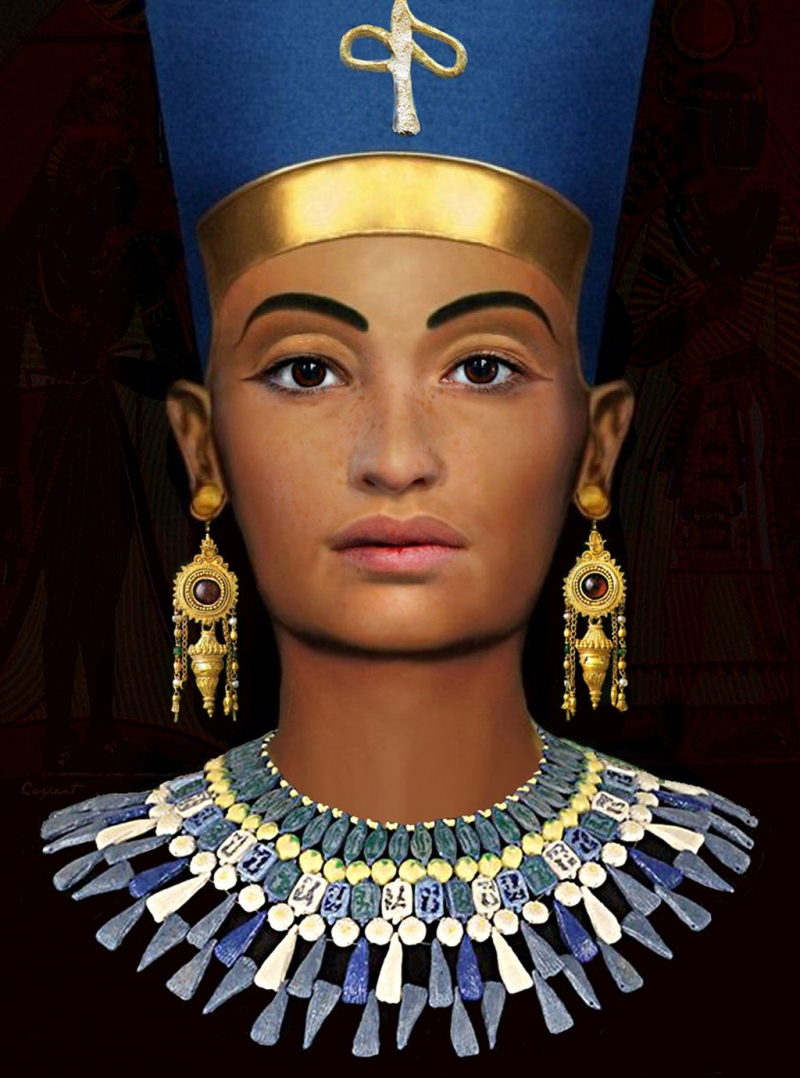
www.pinterest.com 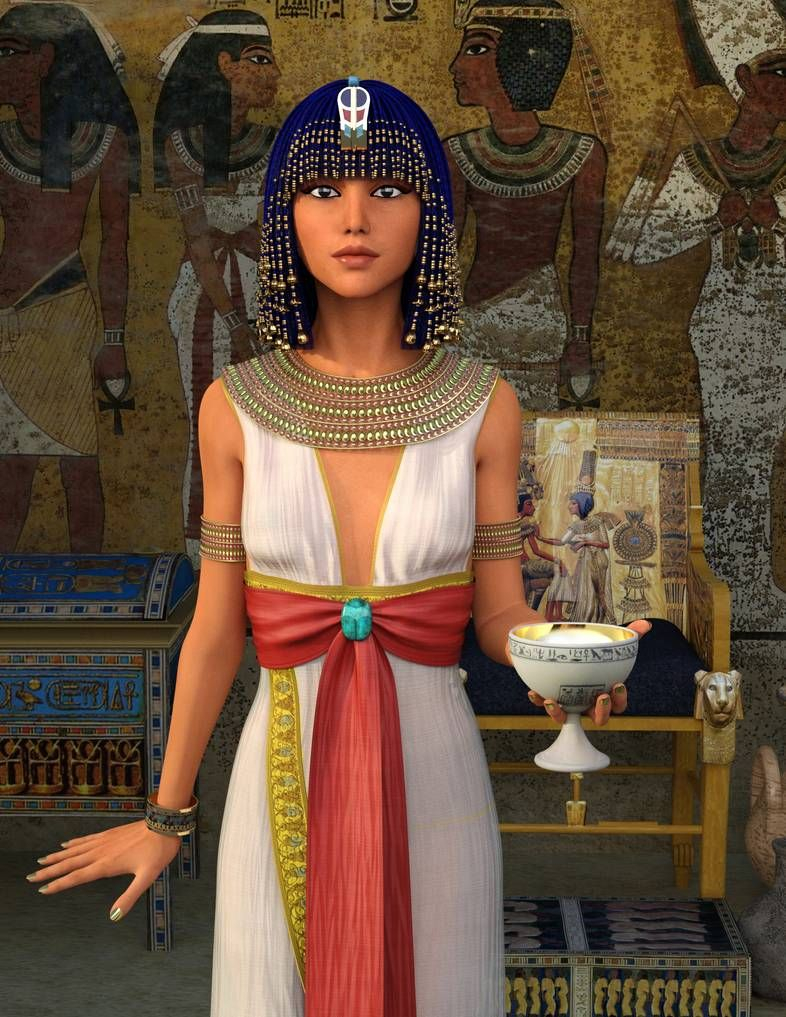
www.pinterest.com -
The pharaoh Tutankhamun was a very young man. He was married off to his half-sister Ankhesenamun at a very young age after being born in 1332 BC. He was just 18 when he passed away. During his rule, he replaced the Aten god, whom the Egyptians had previously worshipped, with the Amun god. He created Amun temples and gave himself the name Tutankhamun, which means "the living representation of Amun."
He made great efforts to ensure that the kingdoms coexisted in peace, but despite his best efforts, there were still frequent wars that hurt the economies of the various kingdoms. Being physically incapable, he did not engage in self-defense. He was regarded as a good advisor and philosopher, and the flowers discovered in his grave indicate that he was well-liked by a large number of people. So, Tutankhamun became one of the most famous people in Ancient Egypt.
People have speculated that the two children whose remains are found in his mummies are his wife Ankhesenamun's preterm infants. Tutankhamun's limitations were claimed to have prevented him and his wife from having children, despite having a highly passionate marriage. He had a lot of wives. His cause of death is still a mystery. There have been unfounded rumors that his wife's grandpa may have killed him to take the kingdom.
Born in: 1332 BC
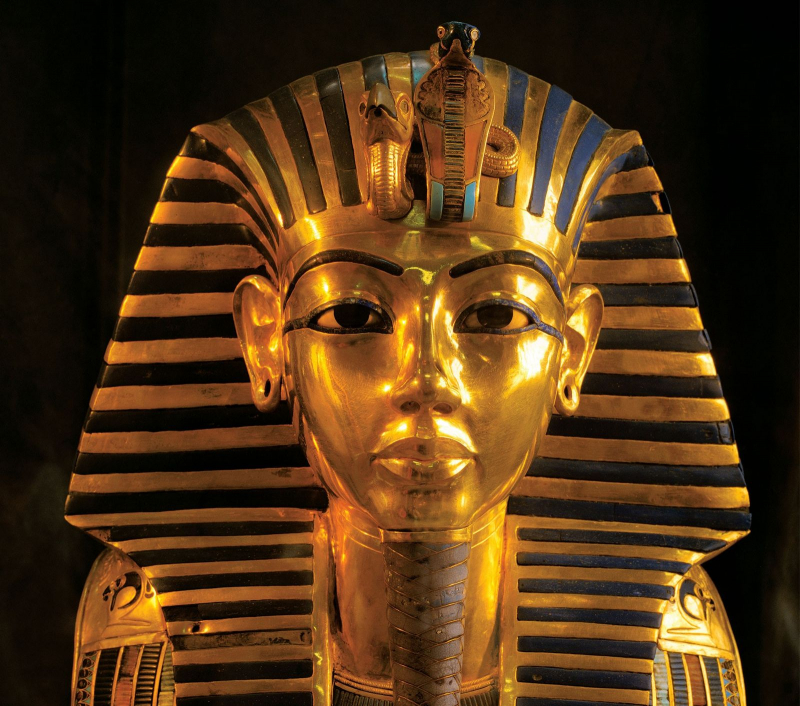
www.history.com 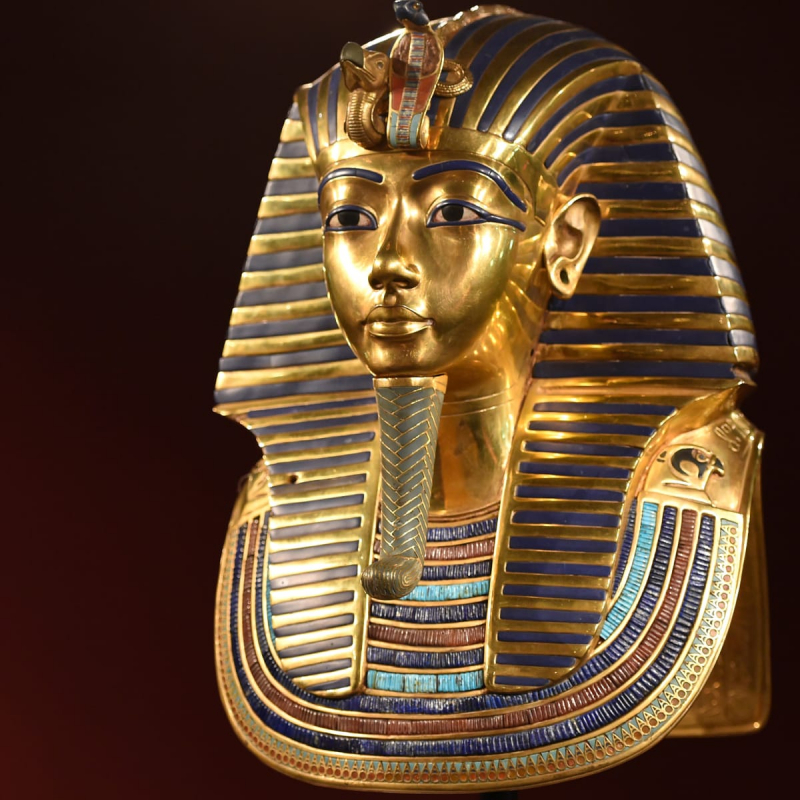
www.history.com -
Born in 1303 BC, Ramesses II was one of Egypt's most renowned and distinguished pharaohs. His father designated him as the prince who would succeed him on the throne at the young age of 14. Ramesses II took over the throne and governed for six decades when his father passed away in 1279 BC. He was now the second-longest reigning Pharaoh in the history of ancient Egypt, behind Pepi II. He ruled for an astounding 67 years before passing away at the age of 92. Since he had lived longer than the majority of his family, Merenptah, his thirteenth son, succeeded him when he passed away. Ramses had a large number of wives and a large family. Considered to be among Egypt's finest kings was Ramses II. The numerous conflicts he fought throughout his reign left their imprint, and he was renowned for his superior military prowess.
Ramses II constructed more buildings than any previous king in Egyptian history. He built several monuments and temples fostering Egyptian civilization early in his reign. Many of his architectural accomplishments may still be seen in Egypt today. His most famous creations were the Ramesseum and the Abu Simbel Temple. Additionally, he waged and won several battles that provided Egypt with financial support. He ruled Egypt for a total of sixty-six years, during which time all of his accomplishments generated prosperity and favorable developments. In the end, he passed away in 1213 BC at the age of 90, leaving a prosperous Egypt in his wake.
Born in: 1303 BC
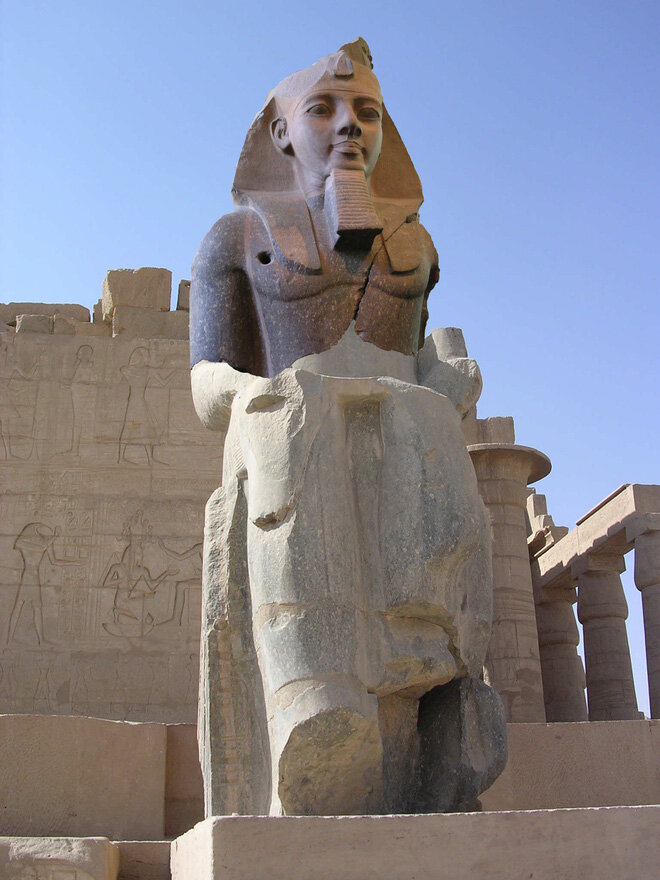
soha.vn 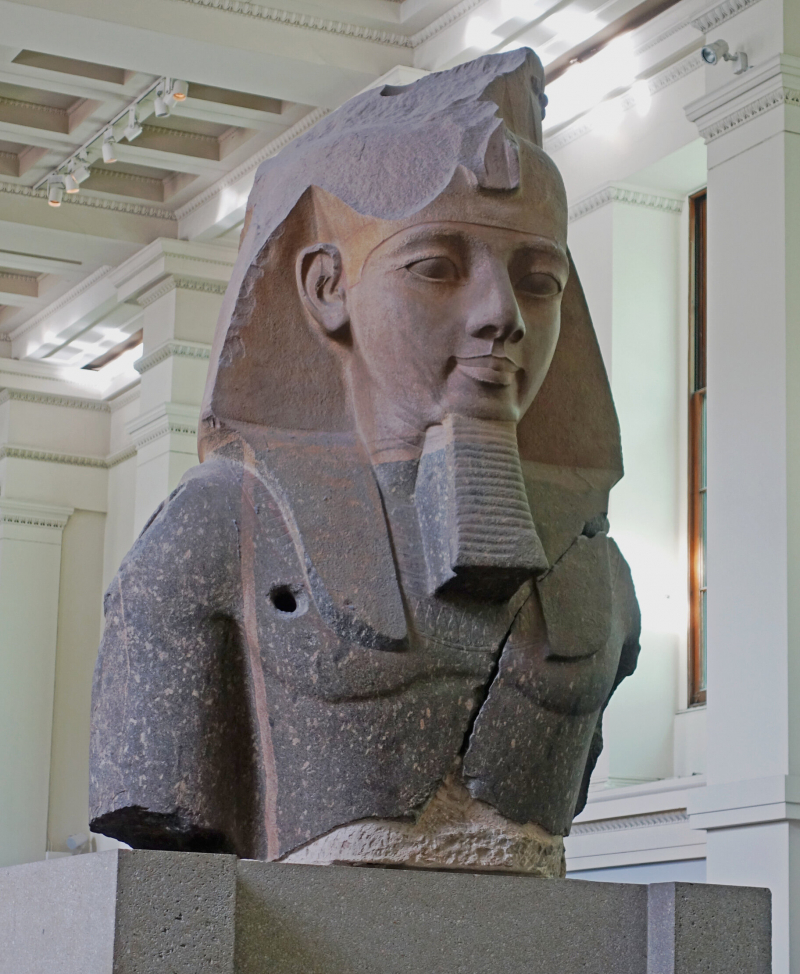
soha.vn -
Cleopatra was a significant figure in Egyptian history who was born in Alexandria, Egypt, around 69 BC. She was a Pharaoh of Egypt and succeeded her father as ruler of the Ptolemaic Kingdom of Egypt. Cleopatra was well-known for her power and beauty, which were admirably captured in sculptures and paintings. Her intellect was another quality that attracted attention in addition to her attractiveness. Greek was the language of Ptolemaic Pharaohs, who refused to learn Egyptian. She was the first individual to master various languages in addition to Egyptian.
Although she was required by her classmates to use Greek as the official language of communication, she nevertheless favored Egyptian. Her understanding of various languages paralleled her goal to return Northern Africa and West regions to Egypt. She was able to become an excellent administrator with an understanding of all these factors, resulting in important policies that benefited Egypt. During her reign, she was depicted on silver, copper, and other metal coins, but there were no gold coins.
Her scandalous liaisons with Julius Caesar and Mark Antony, leaders of the Roman Empire, attracted a lot of attention. She also had four children: Alexander Helios, Caesarion, Ptolemy Philadelphus, and Cleopatra Selene II. She committed herself on August 12, 30 BC, despite having a prosperous rule and a great deal of reputation. By an asp, a deadly Egyptian snake that was also a symbol of heavenly kingship.
Born in: 69 BC
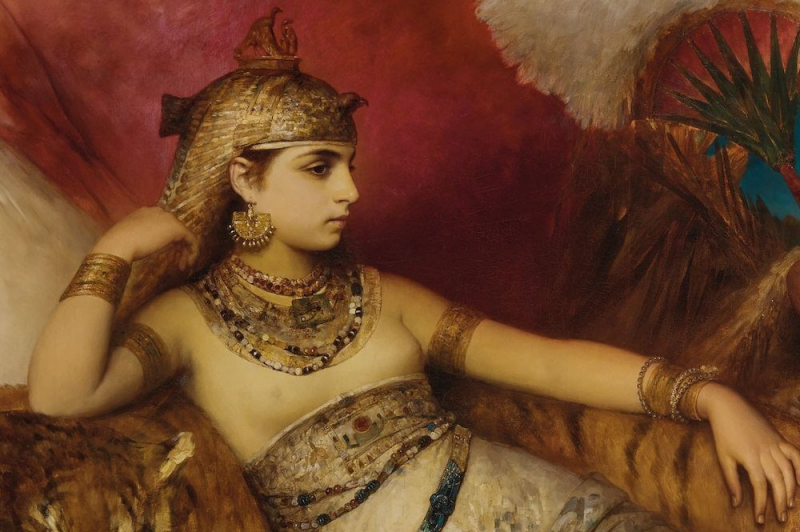
greekreporter.com 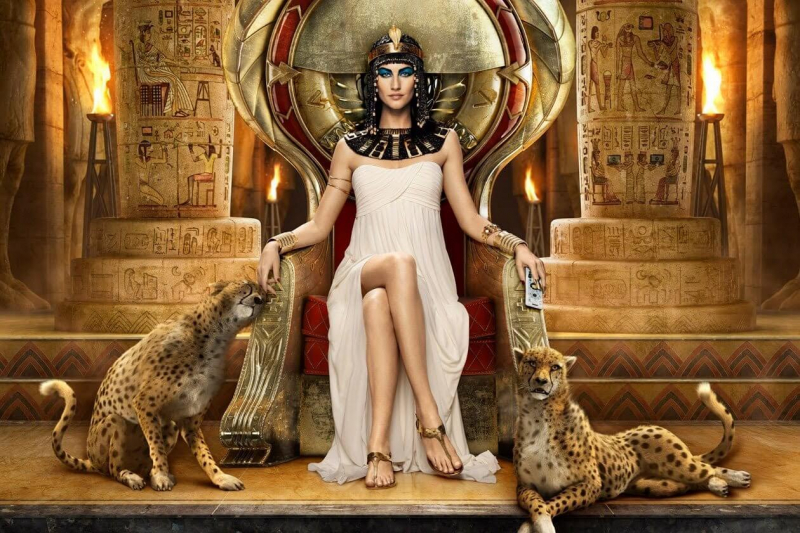
greekreporter.com -
A prominent Jewish philosopher is Maimonides. In Cordoba, Spain in 1135, he was born. He was not only a philosopher but also a scholar and a doctor. When he was very young, he became interested in science and philosophy. It was considered that he adhered to the Ganoic tradition, which many people at the time disapproved of since they thought Muslim law was more significant.
Jewish thought was greatly influenced by Maimonides. His opinions and publications from the past play a crucial part in the development of Jewish theoretical thought. In the Middle Ages, Maimonides, one of the earliest marshals of Jewish law, compiled the regulations for the Jewish people into one volume, The Mishneh Torah. In this work, he combined important Jewish scriptures with thirteen religious tenets.
He published several works that were reflections of his character and philosophy. In addition to his leadership abilities, Maimonides is thought to have been chosen as the leader of the Egyptian Jews because of his sympathy for his people. His leadership in the Jewish community was validated by his brilliance, which was displayed in his writings, together with his deep humanity. After his younger brother, a merchant passed away, Maimonides continued his education to become a doctor. His parents had left their money to him. He knew a great deal about Greek medicine. On December 13, 1204, Maimonides passed away in Fustat, Egypt.
Born in: 1135
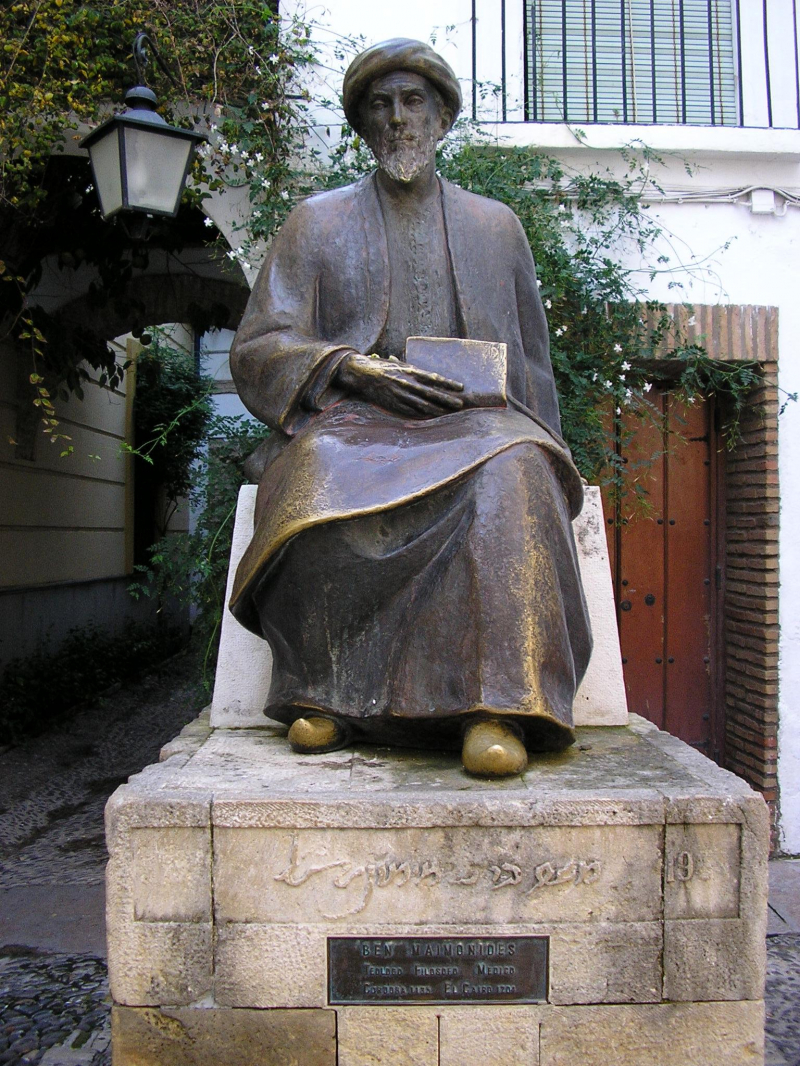
en.wikiquote.org 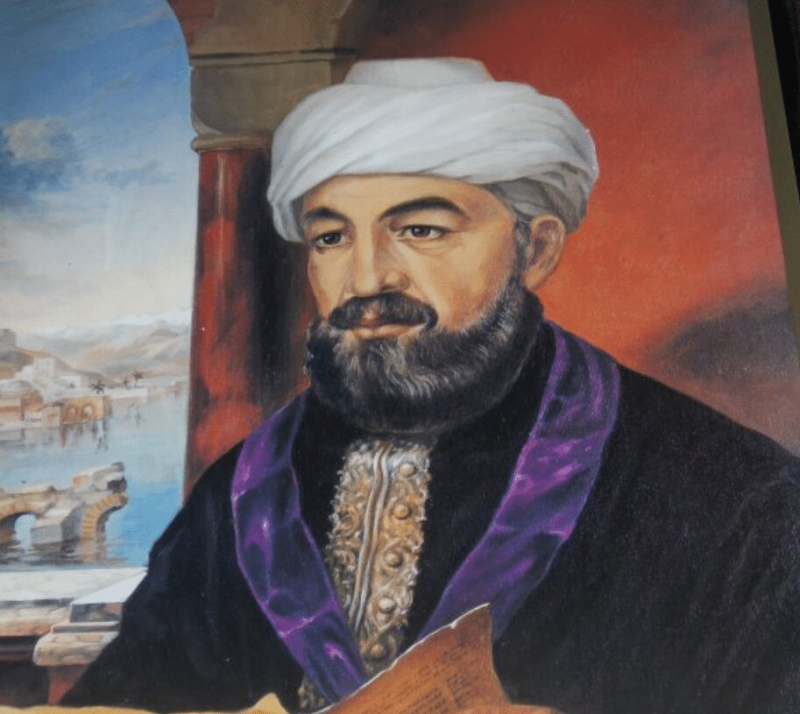
jewishunpacked.com -
Arab sociologist, philosopher, and historian Ibn Khaldun lived from 27 May 1332 to 17 March 1406. He was the original creator of the proto-disciplines, which were the first kinds of discipline. He was regarded as the founding father of contemporary sociology and was born in Egypt in early 1332. Ibn Khaldun was raised in a prosperous family. He had many excellent professors, but he also enjoyed self-education. Despite being wealthy, he struggled greatly as a child and lost both of his parents while he was just a teenager.
Khaldun was regarded as one of the most distinguished Middle Ages intellectuals by Niccol Machiavelli of the Renaissance and other European scholars of the nineteenth century due to the importance of his writings. Outstanding successes in his political career were the result of his intelligence and diligence. Khaldun's brilliance at age 20 would give him a head start in his political career.
He would rely on his trustworthy conscience to determine the truth while maintaining high moral standards and ethical principles. He would put everything towards getting whatever was ethically wrong either changed or removed. His colleagues, notably Ibn Hajar al-Asqalani, would attack him even though most people would commend him for his knowledge and morality. Islamic classical scholar and polymath Ibn Hajar al-Asqalani. Khaldun would be charged with lacking historical knowledge, using the wrong title, being disorganized, and writing in a manner like the prolific Arab author Al-Jahiz. Despite the claims that he was an idiot and had copied well-known authors, Khaldun is nonetheless acclaimed for his humor, intellect, and skill with words.
Born in: 1332
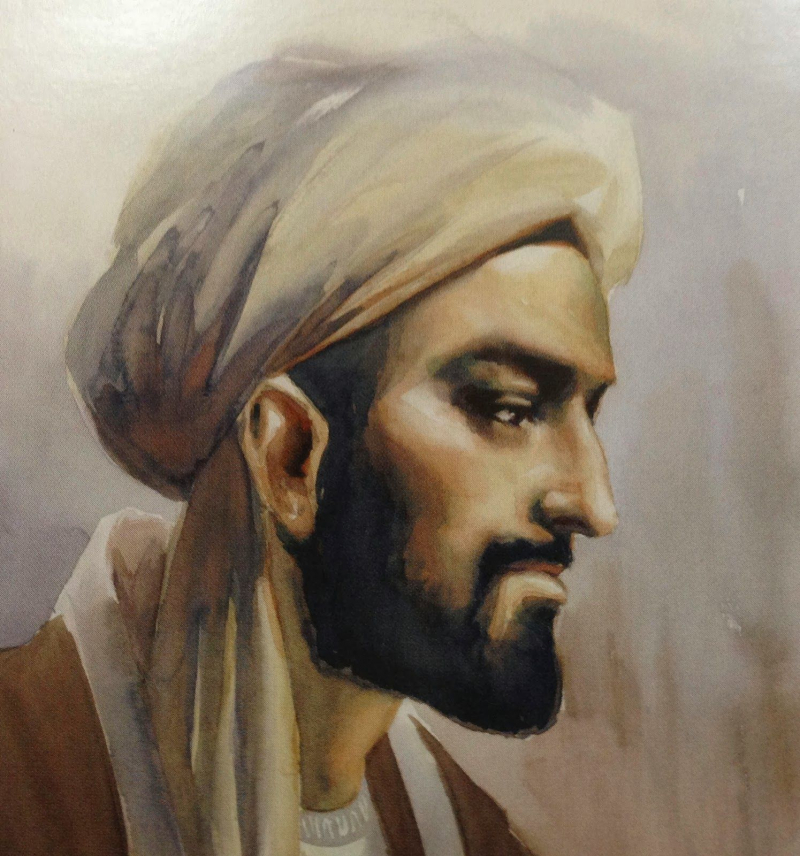
www.pinterest.com 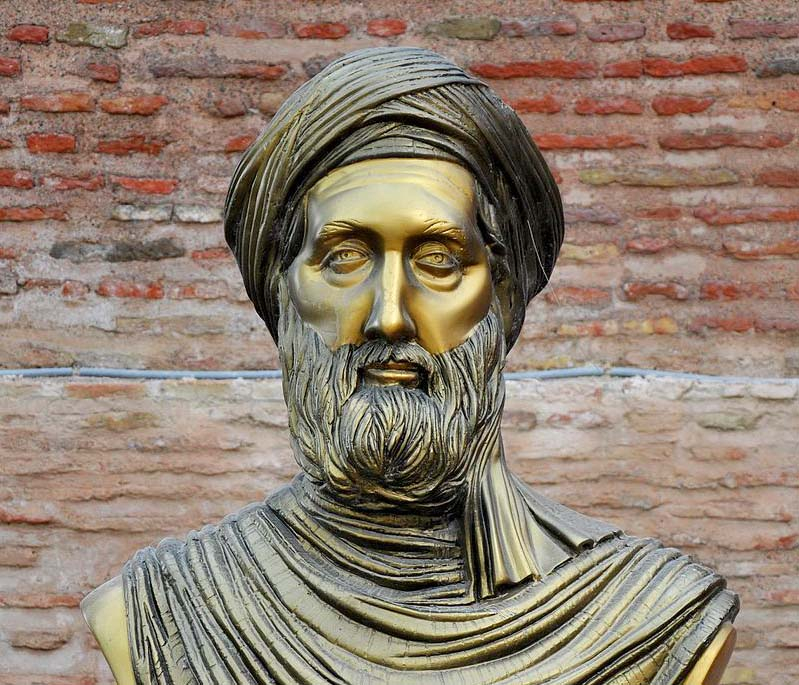
www.pinterest.com












